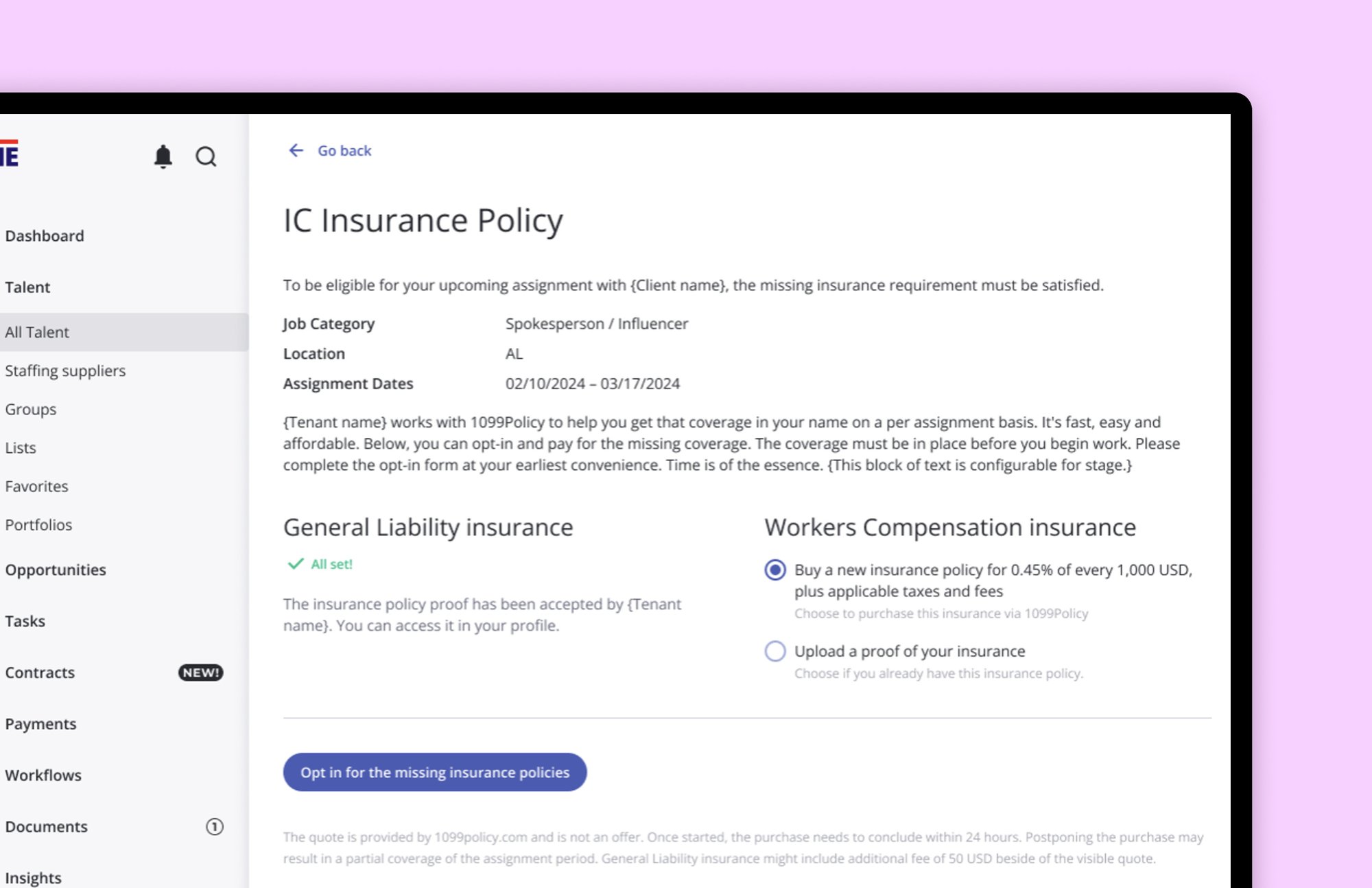The Smarter Way to Manage
Your Freelancers
Onboard, classify, manage, and pay your global freelance talent
- easily and compliantly - with Worksuite.

Contingent Workforce Management
Find, Onboard, and Grow Your Contingent Workforce
- Quickly find your top freelancers when you need them.
- Customize onboarding workflows to suit your needs.
- Track, manage, and expand your freelance talent pool.
Global Pay
Pay your freelancers – wherever they are in the world
- Manage multi-currency payments for seamless transactions
- Get support throughout the payment process.
- Easily file 1099 forms for freelancers.

Independent Contractors Insurance
Freedom to scale your coverage for short-term or temporary teams.
Let's Talk About Your Growth Goals
Collaborate with one of our experts for a genuine conversation about your current challenges and business growth objectives. No sales pitch, just an honest discussion about what you're working to achieve and how we might help.
Driving Success Across Industries
Select an option below:
- Enterprise
- Editorial Content Management
- Events Management
- Digital Media & Publishing
- Brand & Creative
- Coaching & Consulting
Coaching & Consulting
Managing consultants and coaches while ensuring they adhere to project timelines, meet client expectations, and are compensated accurately can be complex. Worksuite offers a centralized platform for sourcing, managing, and paying.

Read Case Study
Enterprise Solutions
Whether your organization employs a team of 100 or 1000, Worksuite seamlessly integrates a scalable Freelancer Management System (FMS) designed to align with the unique requirements of enterprise-level operations.

Ready Case Study
How Correlation One uses Worksuite to manage their rapidly scaling freelancer network
Digital Media & Publishing
Worksuite allows for efficient digital publisher onboarding, task management, and payment processing, ensuring streamlined content workflows.

Read Case Study
Brand & Creative
Managing creative freelancers across multiple projects can lead to delays and inconsistencies. Worksuite helps agencies efficiently assign tasks, track progress, and control budgets.

Read Case Study
How Worksuite helped Jack Morton slash hours of time a week off their freelance onboarding & management processes.
Events Management
Worksuite simplifies hiring, onboarding, and payments, giving event managers real-time control over their freelance workforce and helping meet deadlines smoothly.

Read Case Study
Editorial Content Management
Worksuite streamlines task assignment, content tracking, and payments, ensuring editorial teams can produce high-quality content on time without administrative overload.

